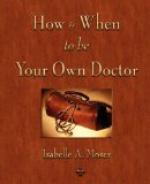Another sure fire way to ruin any food, including the very best available is to eat in the presence of negative emotions generated by yourself or others. Negative emotions include fear, anger, frustration, envy, resentment, etc. The digestive tract is immediately responsive to stress and or negative thoughts. It becomes paralyzed in negative emotional states; any foods eaten are poorly digested, causing toxemia.
It is natural for a person who has lost a loved one or suffered a great loss of any kind to lose their appetite for a period of time. This reaction is pro-survival, because while grieving, the body is griped by powerful negative emotions. There are people who, under stress or when experiencing a loss, eat ravenously in an attempt to comfort themselves. If this goes on for long the person can expect to create a serious illness of some kind.
Individual sensitivity to this type of overeating is dependent upon genetics and personality and who is generating the negative emotions. Self generated negative emotions are very difficult to avoid. If you are unable to change your own emotional tone or that of others around you, then it is important to eat very lightly, eat only easily digested foods such as raw fruits and vegetables, raw juices, steamed vegetables, and small servings of whole grains, nuts and seeds.
Diets To Heal The Critically Ill
A critically ill person is someone who could expire at any moment; therapeutic interventions are racing against death. Can the body repair itself enough before some essential function ceases altogether? If there already exists too much damage to vital organs the person will die. If there remains sufficient organ function to support life, enough vital force to power those functions, and a will to live, the body may heal itself if helped by the correct therapeutic approach. But the therapy does not do the healing; the body does that by itself—if it can. This reality is also true of allopathic medicine.
I believe fasting is the therapy that almost invariably gives a critically ill person their very best chance of recovery. If a patient dies while fasting they almost certainly would have died anyway, and if death comes while fasting, it will be more comfortable, with less pain, and with more mental clarity.
Critically ill people may have, among other things, any of the following diagnoses: advanced cancer, advanced aids, heart failure, very high blood pressure, kidney failure, advanced liver disease, advanced emphysema, pneumonia or other catastrophic infections, especially those that seem unresponsive to antibiotics, strokes, emboli, sclerotic vessels as found in arteriosclerosis, severe nerve degeneration interfering with nerve transmission to vital organs.




